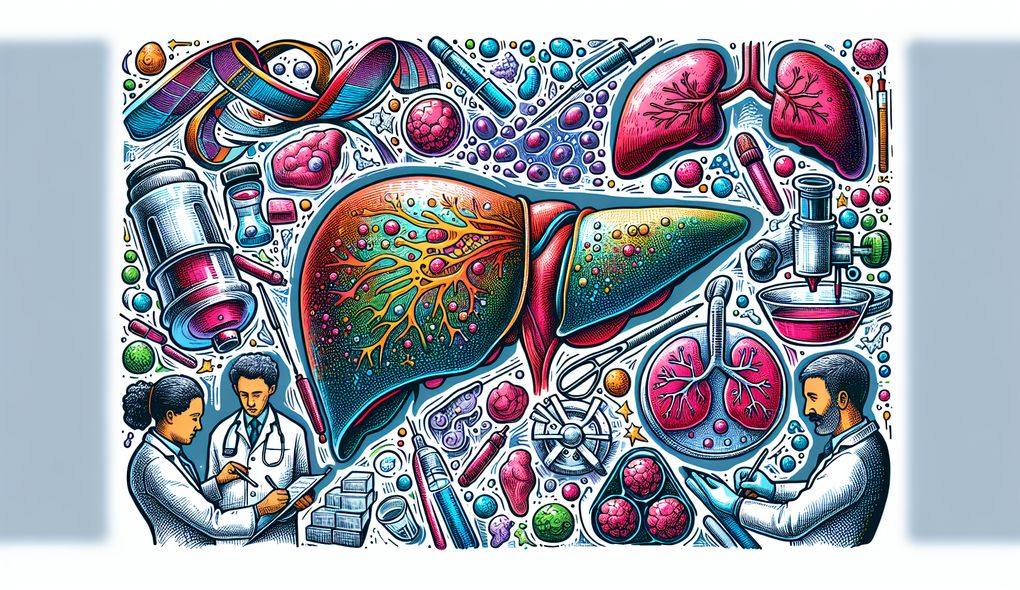How do you maintain a compassionate and empathetic approach when working with patients who may be dealing with serious liver conditions?
INTERMEDIATE LEVEL

Sample answer to the question:
Maintaining a compassionate and empathetic approach when working with patients who may be dealing with serious liver conditions is extremely important to me. I understand that these patients are going through a challenging time, and it is crucial to provide them with emotional support along with medical care. I make it a point to listen attentively to their concerns and validate their feelings. I treat each patient as an individual, recognizing their unique experiences and needs. Additionally, I stay updated on the latest advancements and research in hepatology to ensure that I can provide the best possible care for my patients.
Here is a more solid answer:
Maintaining a compassionate and empathetic approach when working with patients who may be dealing with serious liver conditions is of utmost importance to me. When interacting with these patients, I ensure that I actively listen to their concerns and validate their emotions. I take the time to explain their condition in a way they can understand, using empathetic language and offering reassurance. I believe in treating each patient holistically, recognizing that their emotional well-being is as important as their physical health. Furthermore, I regularly collaborate with multidisciplinary teams, such as nurses, social workers, and nutritionists, to provide comprehensive care to my patients. In terms of clinical skills, I have extensive experience in diagnosing and managing various liver conditions, including hepatitis, fatty liver disease, cirrhosis, and liver cancer. I am proficient in performing liver-related diagnostic procedures, such as liver biopsies and endoscopic retrograde cholangiopancreatography (ERCP). To ensure that I stay up-to-date with advancements in hepatology, I actively participate in medical conferences and engage in ongoing medical education.
Why is this a more solid answer?
The solid answer expands on the basic answer by providing specific examples and details. It mentions active listening, empathetic language, and reassurance as strategies to maintain a compassionate and empathetic approach. It also highlights the candidate's ability to collaborate with multidisciplinary teams and their strong clinical skills in diagnosing and managing liver conditions. However, it can still be improved by discussing the candidate's experience in managing complex patient cases and their commitment to ongoing medical education.
An example of a exceptional answer:
Maintaining a compassionate and empathetic approach when working with patients who may be dealing with serious liver conditions is at the core of my practice as a hepatologist. I understand that these patients are facing immense physical and emotional challenges, and it is crucial to provide them with unwavering support. To ensure that I maintain a compassionate approach, I prioritize active listening and create a safe space for my patients to express their fears and concerns. I validate their emotions and provide empathetic guidance throughout their journey. For example, when explaining the intricacies of their liver condition, I use concise yet comprehensive language and visual aids to help them grasp the information effectively. Additionally, I actively collaborate with a multidisciplinary team of healthcare professionals, including nurses, dietitians, and mental health counselors, to provide holistic care to my patients. I believe in the power of teamwork and recognize that addressing complex liver conditions requires a comprehensive approach. In terms of clinical skills, I have a track record of successfully managing complex patient cases, including patients awaiting or having undergone liver transplantation. I am proficient in performing liver biopsies and endoscopic retrograde cholangiopancreatography (ERCP). To stay at the forefront of advancements in hepatology, I regularly attend medical conferences, engage in research activities, and contribute to clinical trials. By actively participating in these activities, I ensure that my patients receive the most up-to-date and evidence-based care available.
Why is this an exceptional answer?
The exceptional answer goes above and beyond by providing specific examples and showcasing the candidate's extensive experience and expertise in managing liver conditions. It emphasizes the candidate's commitment to maintaining a compassionate approach through active listening, empathetic guidance, and collaboration with a multidisciplinary team. The answer also highlights the candidate's experience in managing complex patient cases and their dedication to staying updated with advancements in hepatology through research and participation in clinical trials.
How to prepare for this question:
- Familiarize yourself with various liver conditions, including hepatitis, fatty liver disease, cirrhosis, and liver cancer. Understand the symptoms, diagnostic procedures, and treatment options for each condition.
- Reflect on past experiences where you demonstrated empathy and compassion towards patients. Prepare examples to illustrate your ability to listen actively, validate emotions, and provide holistic care.
- Research and stay updated on the latest advancements in hepatology. Familiarize yourself with current research studies and clinical trials in the field.
- Practice explaining complex medical information in a concise and understandable manner. Use visual aids or analogies to help simplify explanations for patients.
- Highlight your experience in collaborating with multidisciplinary teams. Prepare examples that demonstrate effective communication and teamwork skills.
What are interviewers evaluating with this question?
- Communication
- Empathy
- Clinical Skills

